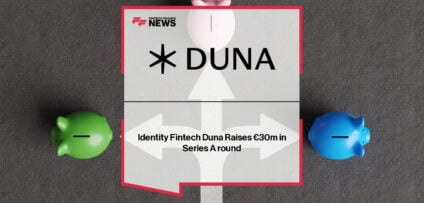Breaking News

Forget Black Friday, it’s all about Cyber Monday
Ahead of Cyber Monday on 27th November, AXA IM’s managers comment:
Jeremy Gleeson, manager of the AXA Framlington Global Technology fund and AXA WF Digital Economy fund:
“Online shopping holidays like Cyber Monday are perfectly suited to todays’ connected consumer. Forecasts suggest that consumers will spend even more cash this Cyber Monday (an estimate of $3.81bn) after hitting an all-time high in the US last year, with retailers shifting $3.45bn of goods on one day. Recently, the Chinese equivalent, Singles day 2017, crushed this record seeing e-commerce giant Alibaba sell $25bn of goods- more than what Starbucks make in a whole year!
“This is being driven by changes to the retail industry underpinned by innovation and the digital economy. The smart phone, digital marketing and finding ways to fulfil the online customer experience are all trends that continue to transform the retail industry.
“With 31% of transactions done on mobiles last Cyber Monday ($1.07bn) and an estimated 60% of shoppers using their phones to look up product information, even when in-store, optimised mobile sites have never been more important. Companies’ marketing spend have also significantly shifted over the years, moving from more traditional print and TV ad campaigns to personalised digital models such as search engines (e.g. Google) and social media platforms (Facebook, Instagram, etc.).
“Traditional bricks and mortar businesses are increasingly requiring expertise from 3rd party specialists in order to compete and catch up with “digital native” businesses. Convenience for customers has also become priority – the ordering, payment process and delivery should be fast, secured and as smooth as possible. Any frictions within any of these steps may influence the final decision to purchase the product and will likely affect the image or reputation of the company.
“As the growth of online sales increases, we also see large investment into supply chains which have helped improve supply chain software and warehouse automation helping businesses to keep up with same day and next day delivery. Whilst retailer’s warehouse activity currently stands at above 90% manual work, it is thought automation could be 5-6 times more productive; we expect to see more companies (as Amazon have done) turn to robo tech to further streamline processes.”
Nigel Thomas, manager of the AXA Framlington Select Opportunities fund added:
“In terms of market share, the UK is the global leader in online clothing purchases, at 24% of total sales. This compares with 15% for France and 6% for Spain. Many people, especially when ordering clothing, order different sizes and colours, keep one and return the rest and this has led to a new burgeoning industry called the ‘reverse supply chain’. How many items I wonder will be returned after the Cyber Mondaybuying bonanza?
“ASOS, one of the pioneers of fast fashion online, estimates that 40% of the products they deliver to customers are returned (a global average with regional variations). This has led to the growth of reverse logistics companies to handle these volumes. It is not just about having lorries, vans and distribution centres. Clothing retailers need the returns sorted, dispatched to a dedicated steam room, re-hung and bagged, and returned to the retailer’s warehouse.
“Earlier this year, we invested in Eddie Stobart Logistics through their initial public offering (IPO). Their CEO, Alex Laffey, who formerly ran Tesco’s logistical operations, has expanded the business into this part of the logistics industry, leveraging their existing expertise in distribution centres and the ‘middle mile’ haulage.
“The other crucial part of fulfilling the online customer experience is around the payment process. We have witnessed significant improvements in online transaction security as well as growth in credit payment options, with companies such as Worldpay and Experian benefiting from the growth of payments online.”
- Addresscloud Appoints Clair Bush as Fractional CMO to Support Scalable Delivery of Geospatial Risk Intelligence Read more
- Banking Transformation Summit | 19-20th May | Tobacco Dock, London Read more
- ComplyAdvantage: Why Compliance Still Needs the Human Touch Read more
- ING: Turning AI Pilots Into Production Read more
- Volante Technologies: Why Banks Need Partners, Not Vendors Read more













